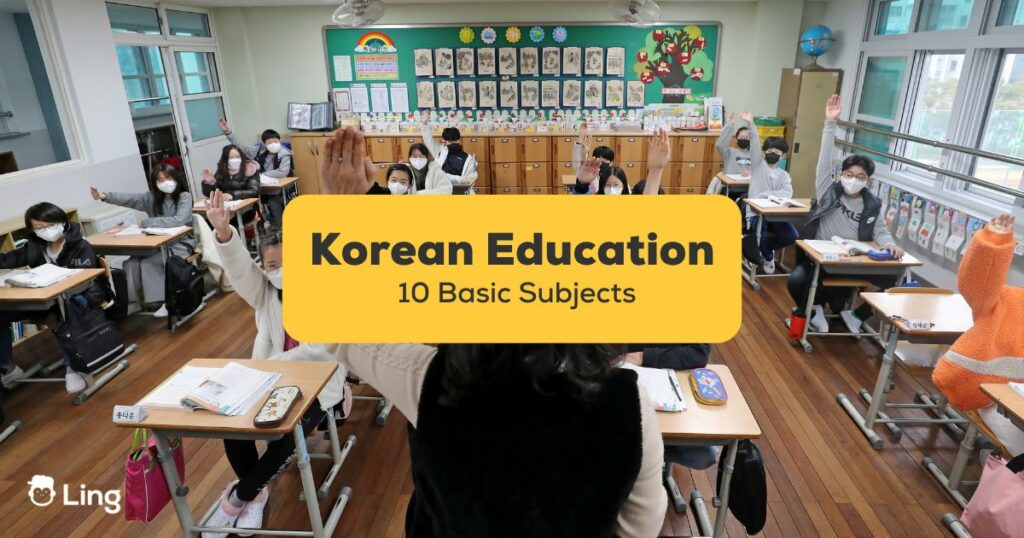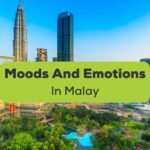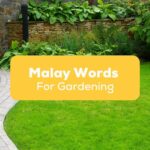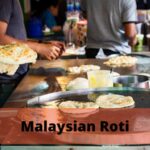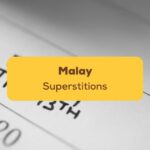Want to feel the vibe of being a Korean student? Why not learn the subjects in Korean, or 과목 (gwamok), first? If you want to improve your vocabulary, this blog is definitely perfect for you!
Watching K-dramas that feature schools make us wanna go to South Korea and enroll in their schools. We can see how Koreans value education and learning from the cute uniforms and good times with teachers and classmates, down to parents’ hard work.
The Korean public education system is divided into primary school for six years, middle school for three years, and high school for three years. Only approximately 5% of Korea’s secondary schools were coeducational in 1996, and it only increased by 10%. Even is the schools are already coeducational, the high schools are still divided along gender lines. As we usually do in K-dramas set in the 80s, girls and boys are separated. Because the curriculum is now standardized, both boys and girls learn about domestic and technology science.
Now that you have a little bit of background about the educational system in South Korea, let’s learn the different subjects in Korean.
School Subjects In Korean
If you’re wondering what main subjects are taught in South Korean schools, then this blog is perfect for you. Moral education, Korean language, mathematics, science, social studies, physical education, music, fine arts, and practical arts are the primary school’s nine main disciplines or subjects.
For middle school, which is from grades 7 to 9, the curriculum comprises 12 required subjects, extracurricular activities, and electives. Academic and vocational high schools are the two types of high schools.
The South Korean educational system’s goal in education is pretty incredible. It says:
…to foster each student’s personality and ability needed to preserve and strengthen the backbone of the nation; to develop students’ knowledge and skills to prepare them for jobs needed in society; to promote each student’s autonomy, emotional development, and critical thinking abilities to be brought to bear in and out of school; and to improve physical strength and foster a sound mind.”
With this, subjects are determined to achieve their goals at every level. Here are the basic subjects Korean students learn in school in South Korea.
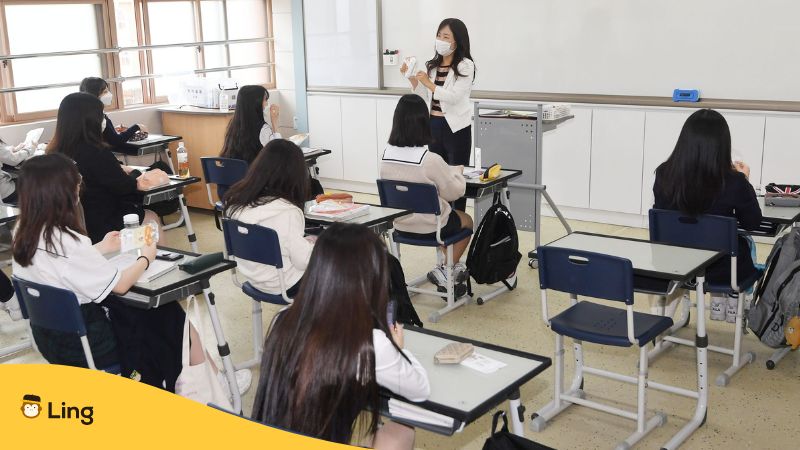
도덕 교육 (Dodeok gyoyuk) – Moral Education
Respect and values are fundamental in Korean culture. I am sure you have noticed that by just watching K-dramas or watching your K-pop idols’ interviews and concerts. These traits are just a few of the traits the Korean moral education teaches Korean students. Moral education in South Korea aims to assist students in developing etiquette and moral principles to live desirable lives as Koreans. It also seeks to develop the students’ patriotism and citizenship and desire to seek global peace and co-posterity.
국어교육학 (Gukeogyoyukhak) – Korean Language Education)
Learning how to write and read Korean usually starts at home with their parents, but it is being developed in school. The Korean language is one of the Koreans’ identities, so they make that students appreciate and preserve it by including it as a subject.
사회교육학 (Sahoegyoyukhak) – Social Studies Education
Social studies education is included in their curriculum to prepare students to become worthy citizens of society. Social studies cover Korean history, economy, politics, society and culture, international history, and world geography.
수학 (Suhak) – Math
Did you know that South Korea is one of the best-performing OECD countries in reading literacy, mathematics, and science? They have an average student score of 519, compared to the OECD average of 493, putting it in ninth place globally. Math is one of the main subjects taught in every school globally.
과학 (Gwahak)- Science
Science is also one of the main school subjects taught in schools worldwide. In South Korea, they have Seoul Science High School, an academy for gifted students with ages 15–to 18 interested in science.
컴퓨터 과학 (Keompyuteo gwahak) – Computer Science
Science and technology have been rapidly growing in South Korea. Being one of the world’s most technologically advanced and digitally connected countries, South Korea pays much attention to computer education. Some of the top-performing universities for computer science are the Korea Advanced Institute of Science and Technology, Yonsei University, and Sungkyunkwan University.
체육 (Cheyuk) – Physical Education
Physical education is a subject enjoyed especially in primary school and high school. PE classes are mandatory from first to tenth grades in South Korea and elective from eleventh to fourteenth.
음악 (Eumak) – Music
Music is really one of the school subjects taught in school. But because of the success of the K-pop industry, music education in South Korea is extra interesting.
미술 (Misul) – Arts/Art
Arts is also one of the important school subjects in Korean education because it helps unleash the creative side and potential of the students. It is also a subject that you can enjoy with your friends with the same interest.
영어 (Yeongeo) – English
Since English is a foreign language to them, Koreans who are fluent in speaking English are really admirable. English language education begins in the third grade to begin learning English in a comfortable environment by conversational exchange rather than rote memorization of grammatical rules, as is still the case in many middle and high schools.
Other School Subjects In Korean
- 회계학 (hoegyehak) – Accounting
- 농학 (nonghak) – Agricultural science
- 대수학 (daesuhak) – Anarchy
- 해부학 (haebuhak) – Anatomy
- 인류학 (inryuhak) – Anthropology
- 고고학 (gogohak) – Archaeology
- 건축공학 (geonchukgonghak) – Architectural engineering
- 건축학 (geonchukhak) – Architecture
- 동양사학 (dongyangsahak)– Asian history
- 천문학 (cheonmunhak) – Astronomy
- 생화학 (saenghwahak) – Biochemistry
- 생체공학 (saengchegonghak) – Bioengineering
- 생물학 (saengmulhak) – Biology
- 생명공학 (saengmyeonggonghak) – Biotechnology
- 식물학 (sikmulhak) – Botany
- 신문방송학 (sinmunbangsonghak) – Broadcasting
- 경영학 (gyeongyeonghak) – Business administration
- 화학공학 (hwahakgonghak) – Chemistry
- 중국 문학 (jungguk munhak) – Chinese literature
- 토목공학 (tomokgonghak) – Civil engineering
- 컴퓨터공학 (keompyuteogonghak) – Computer engineering
- 디자인학 (dijainhak) – Crafts and design
- 범죄학 (beomjoehak) – Criminology
- 세포학 (sepohak) – Cytology
- 무용학 (muyonghak) – Dance
- 가정학 (gajeonghak) – Domestic science
- 연극영화학 (yeongeugyeonghwahak) – Drama
- 역학 (yeokhak) -Dynamics
- 지구과학 (jigugwahak) – Earth science
- 생태학 (saengtaehak) – Ecology
- 경제학 (gyeongjehak) – Economics
- 교육학 (gyoyukhak) – Education
- 공학 (gonghak) – Engineering
- 영어교육학 (yeongeogyoyukhak) – English education
- 영문학 (yeongmunhak) – English literature
- 윤리학 (yunrihak) – Ethics
- 우생학 (usaenghak) – Eugenics
- 의류학 (uiryuhak) – Fashion
- 미술 (misul ) – Fine arts
- 수산학 (susanhak) – Fisheries science
- 민속 (minsok) – Folklore
- 식품영양학 (sikpumyeongyanghak) – Food and nutrition
- 법의학 (beobuihak) – Forensic medicine
- 미래학 (miraehak) – Futurology
- 유전학 (yujeonhak) – Genetics
- 지리학 (jirihak) – Geography
- 지질학 (jijilhak) – Geology
- 기하학 (gihahak) – Geometry
- 문법 (munbeop) – Grammar
- 역사학 (yeoksahak) – Historical science
- 가정학 (gajeonghak) – Home economics
- 인문학 (inmunhak) – Humanities
- 위생 (wisaeng) – Hygiene
- 산업공학 (saneopgonghak) – Industrial engineering
- 정보통신학 (jeongbotongsinhak) – Information and telecommunication engineering
- 국사학 (guksahak) – Korean history
- 한국학 (hangukhak) – Korean studies
- 국문학 (gukmunhak) – Korean literature
- 법학 (beophak) – Law
- 법학 (beophak) – Legal science
- 생명과학 (saengmyeonggwahak) – Life science
- 언어학 (eoneohak) – Linguistics
- 문학 (munhak) – Literature
- 논리 (nonri) – Logic
- 관리 (gwanri) – Management
- 수학교육학 (suhakgyoyukhak) – Mathematics education
- 기계공학 (gigyegonghak) – Mechanical engineering
- 의학 (uihak) -Medical science
- 기상학 (gisanghak) – Meteorology
- 미생물학 (misaengmulhak) – Microbiology
- 군사학 (gunsahak) – Military science
- 자연학 (jayeonhak) – Neo-Confucianism
- 신문공부 (sinmungongbu) – Newspaper studies
- 간호학 (ganhohak) – Nursing science
- 해양학 (haeyanghak) – Oceanography
- 동양학 (dongyanghak) – Oriental studies
- 병리학 (byeongrihak) – Pathology
- 교육학 (gyoyukhak) – Pedagogy
- 약학 (yakhak) –Pharmacy
- 철학 (cheolhak) – Philosophy
- 물리학 (mullihak) – Physics
- 생리학 (saengrihak) –Physiology
- 경찰학 (gyeongchalhak) – Police science
- 정치 (jeongchi) – Politics
- 정치학 (jeongchihak) – Political science
- 정치외교학 (jeongchioegyohak) – Political science and diplomacy
- 심리학 (simrihak ) – Religious studies
- 수사학 (susahak) – Rhetoric
- 지진학 (jijinhak ) – Seismology
- 기호학 (gihohak) – Semiotics
- 사회교육학 (sahoegyoyukhak) – Social studies education
- 사회복지학 (sahoebokjihak) – Social welfare
- 사회학 (sahoehak) – Sociology
- 체육학 (cheyukhak) – Sports education
- 통계학 (tonggyehak ) – Statistics
- 신학 (sinhak) – Theology
- 관광학 (gwangwanghak) – Tourism
- 수의학 (suuihak) – Veterinary medicine
- 서양사학 (seoyangsahak) – Western history
- 여성학 (yeoseonghak) – Women’s studies
- 세계사 (segyesa) – World history
- 동물학 (dongmulhak) – Zoology
Korean Vocabulary Related To School
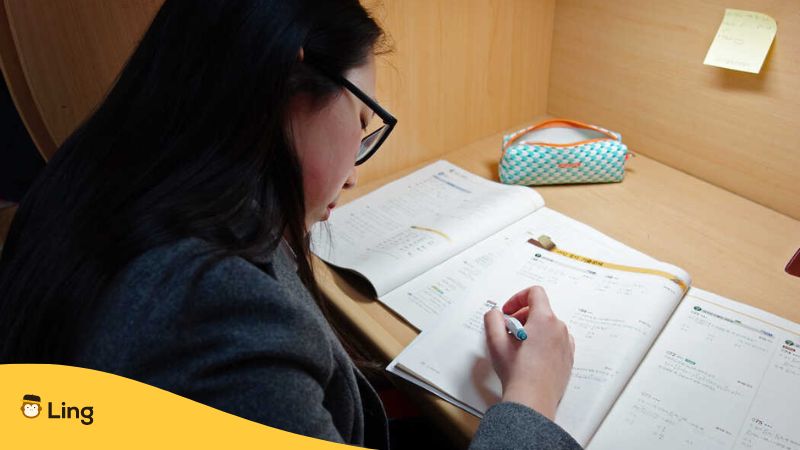
Here are some Korean words and phrases related to the school:
| Korean (Hangul) | Romanization | English Translation |
| 학교 | hakgyo | school |
| 교육 | gyoyuk | education |
| 학부 | hakbu | department |
| 업 | sueop | class |
| 시험 | siheom | exam |
| 학년 | hangnyeon | grade |
| 학기 | hakgi | semester |
| 학생 | haksaeng | students |
| 반 친구들 | ban chingudeul | classmates |
| 선생님 | seonsaengnim | teacher |
| 교사 | gyosa | school teacher |
| 초등학교 선생님 | chodeunghakgyo seonsaengnim | primary school teacher |
| 초등학교 교사 | chodeunghakgyo gyosa | primary school teacher |
| 중학생 | junghaksaeng | middle school students |
| 고등학생 | godeunghaksaeng | high school students |
| 유치원 | yuchiwon | kindergarten |
| 초등학교 | chodeunghakgyo | elementary school |
| 중학교 | junghakgyo | middle school |
| 고등학교 | godeunghakgyo | high school |
| 전문대 | jeonmundae | college |
| 대학교 | daehakgyo | university |
| 대학원 | daehagwon | graduate school |
| 학원 | hagwon | cram school, a private academy |
| 기숙 학교 | gisuk hakgyo | boarding school |
| 어학원 | eohagwon | language school |
| 어학당 | eohakdang | language school |
| 교실 | gyosil | classroom |
| 도서관 | doseogwan | library |
| 강당 | gangdang | auditorium, assembly hall |
| 학교식당 | hakgyosikdang | school cafeteria |
| 공부하다 | gongbuhada | to study |
| 배우다 | baeuda | to learn |
| 연습하다 | yeonseupada | to practice |
| 가르치다 | gareuchida | to teach |
| 교육하다 | gyoyukada | to educate |
Try These School-Related Korean Sentences
| Korean (Hangul) | Romanization | English Translation |
| 공부하고 있어요 | Gongbuhago isseoyo | I am studying |
| 공부했어요? | Gongbuhaesseoyo? | Did you study? |
| 공부해야돼 | Gongbuhaeyadwae | I have to study. |
| 도서관에서 공부했어요 | Doseogwaneseo gongbuhaesseoyo | I studied at the library. |
| 제가 제일 좋은 수업은 영어에요. | Jega jeil joeun sueobeun yeongeoeyo. | My favorite school subject is English. |
| 학교에서 내가 가장 좋아하는 과목은 수학이에요. | Hakgyoeseo naega gajang johahaneun gwamogeun suhagieyo. | My favorite subject in school is math. |
| 지금 한국어학원을 다니고 있어요. | Jigeum hangugeohagwoneul danigo isseoyo. | I am currently attending Korean language school. |
| 좋은 대학교에 입학하게 되기 위해서 열심히 공부해요. | Joeun daehakgyoe ipakage doegi wihaeseo yeolsimhi gongbuhaeyo. | I study hard because I want to get into a good university. |
| 생물학은 살아있는 유기체에 대한 연구입니다. | Saengmurageun sarainneun yugichee daehan yeonguimnida. | Biology is the study of living organisms. |
No Korean Subject In Your School? Learn Korean With Ling App!
With the influence of K-dramas and K-pop, many people want to learn Korean. But the problem is how will you do it? Thankfully, Ling App can provide you with a language learning experience to develop your language skills such as reading, writing, speaking, and even understanding grammar structure. Go to the website or download the app and start your free lesson now!
Updated by: Gwyn
